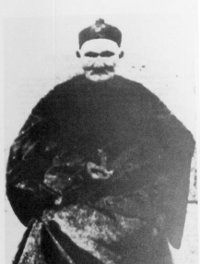
When Chinese herbalist Li Ching-Yun died in 1933, newspapers were hard pressed to write his obituary. Li had contended that he had been born in 1736, which would have made him 197 years old.
In 1930, Wu Chung-Chien of Minkuo University had reported finding records showing that Li had been even older, born in 1677 and congratulated by the imperial Chinese government on his 150th and 200th birthdays.
In 1928 a correspondent to the New York Times had reported that the oldest men in Li’s neighborhood insisted that their grandfathers had known Li when they were children and that he was then a grown man.
Tales told in his province held that Li had traveled widely during his first century, gathering herbs to sell, but then had switched to selling herbs gathered by others. He told one pupil that the secret of living to 250 was to “keep a quiet heart, sit like a tortoise, walk sprightly like a pigeon, and sleep like a dog.” He was credited with either 14 or 23 wives; one 1928 account said that he had 180 living descendants.
He was certainly well preserved. The New York Times noted drily that, according to its 1928 report, “many who have seen him recently declare that his facial appearance is no different from that of persons two centuries his junior.”
(Thanks, Francisco.)
